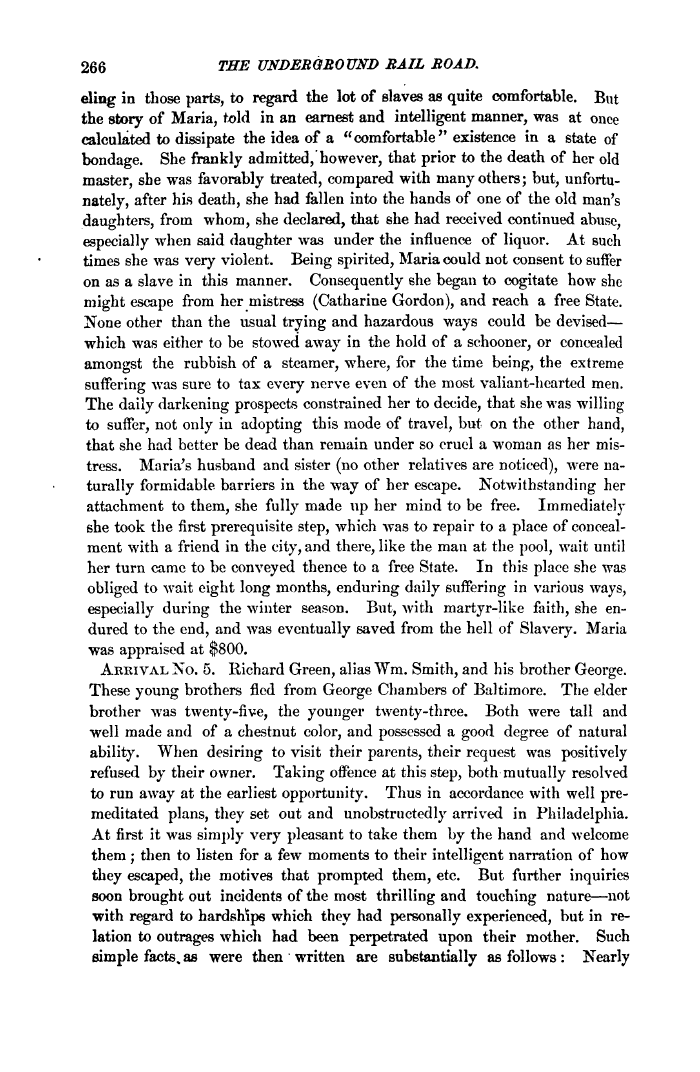 |
||||
 |
||||
| 266 THE UNDERGROUND RAIL ROAD. ding in those parts, to regard the lot of slaves as quite comfortable. But the story of Maria, told in an earnest and intelligent manner, was at once calculated to dissipate the idea of a "comfortable" existence in a state of bondage. She frankly admitted, however, that prior to the death of her old master, she was favorably treated, compared with many others; but, unfortunately, after his death, she had fallen into the hands of one of the old man's daughters, from whom, she declared, that she had received continued abuse, especially when said daughter was under the influence of liquor. At such times she was very violent. Being spirited, Maria could not consent to suffer on as a slave in this manner. Consequently she began to cogitate how she might escape from her mistress (Catharine Gordon), and reach a free State. None other than the usual trying and hazardous ways could be devised— which was either to be stowed away in the hold of a schooner, or concealed amongst the rubbish of a steamer, where, for the time being, the extreme suffering was sure to tax every nerve even of the most valiant-hearted men. The daily darkening prospects constrained her to decide, that she was willing to suffer, not only in adopting this mode of travel, but on the other hand, that she had better be dead than remain under so cruel a woman as her mistress. Maria's husband and sister (no other relatives are noticed), were naturally formidable barriers in the way of her escape. Notwithstanding her attachment to them, she fully made up her mind to be free. Immediately she took the first prerequisite step, which was to repair to a place of concealment with a friend in the city, and there, like the man at the pool, wait until her turn came to be conveyed thence to a free State. ID this place she was obliged to wait eight long months, enduring daily suffering in various ways, especially during the winter season. But, with martyr-like faith, she endured to the end, and was eventually saved from the hell of Slavery. Maria was appraised at $800. ARRIVAL No. 5. Richard Green, alias Wm. Smith, and his brother George. These young brothers fled from George Chambers of Baltimore. The elder brother was twenty-five, the younger twenty-three. Both were tall and well made and of a chestnut color, and possessed a good degree of natural ability. When desiring to visit their parents, their request was positively refused by their owner. Taking offence at this step, both mutually resolved to run away at the earliest opportunity. Thus in accordance with well premeditated plans, they set out and unobstructedly arrived in Philadelphia. At first it was simply very pleasant to take them by the hand and welcome them; then to listen for a few moments to their intelligent narration of how they escaped, the motives that prompted them, etc. But further inquiries soon brought out incidents of the most thrilling and touching nature—not with regard to hardships which they had personally experienced, but in relation to outrages which had been perpetrated upon their mother. Such simple facts, as were then written are substantially as follows: Nearly |